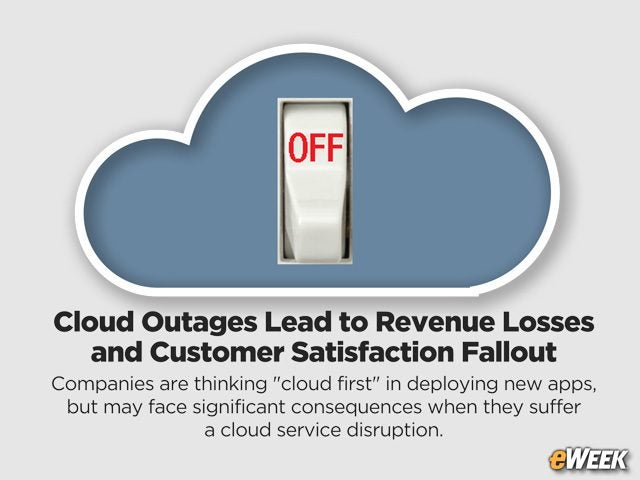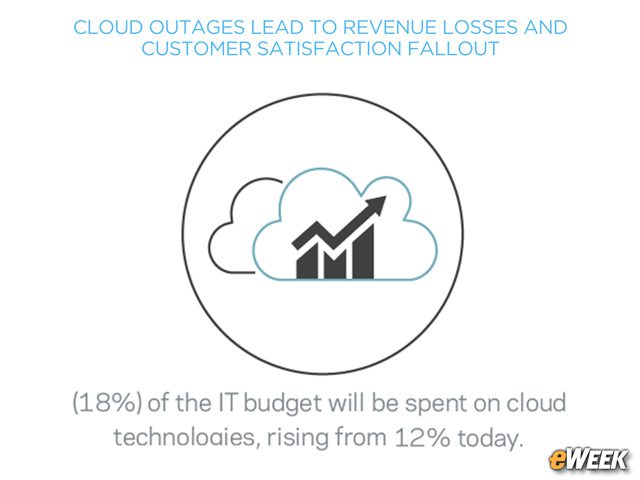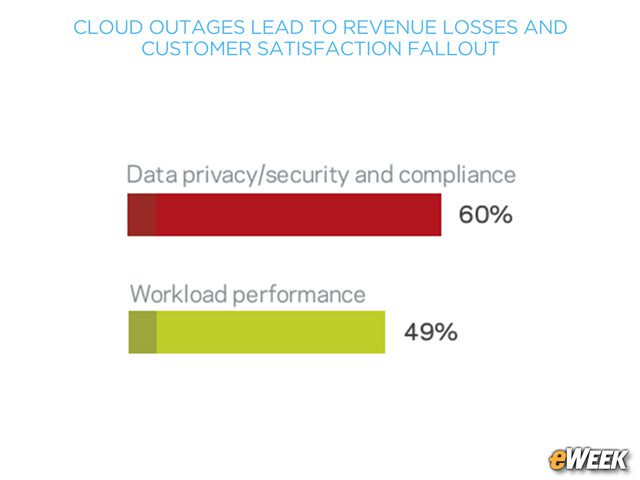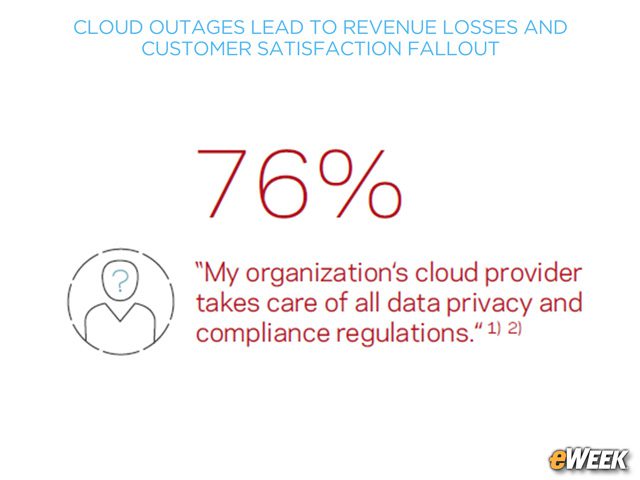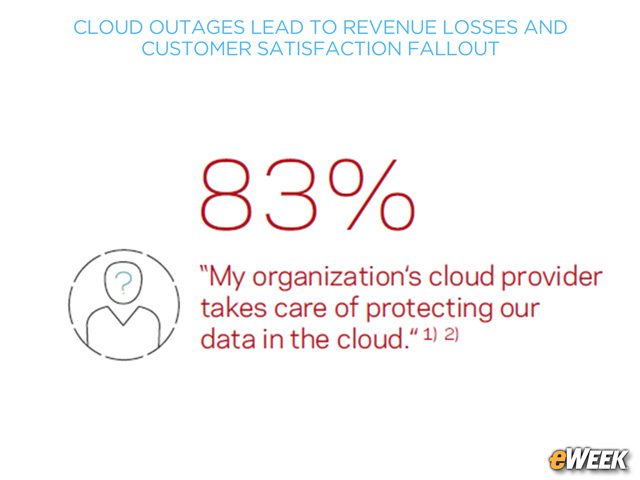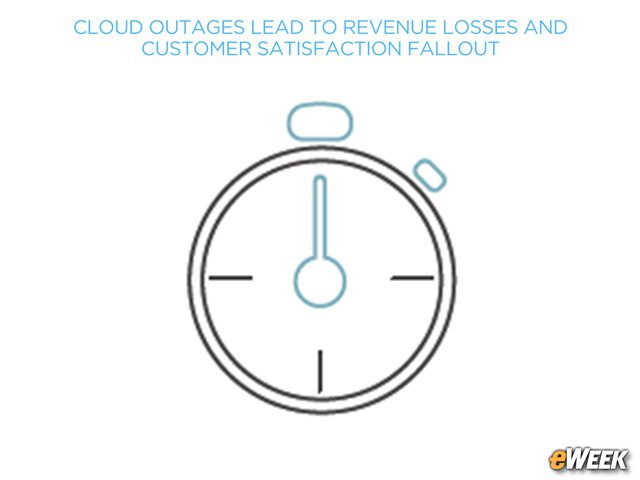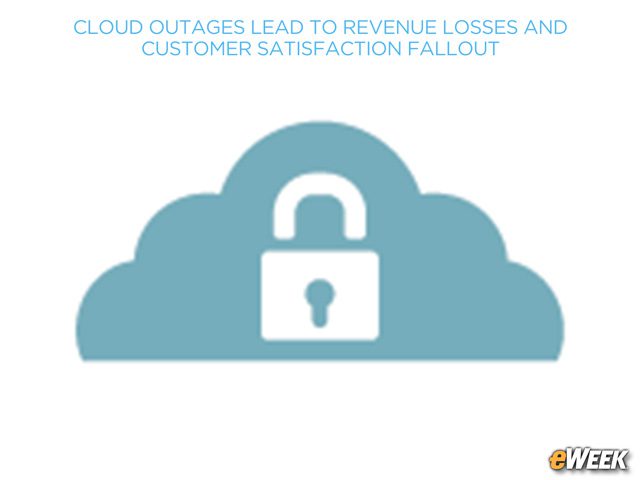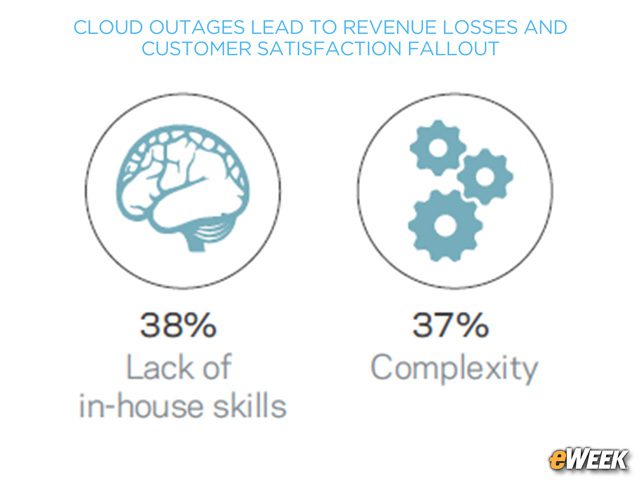eWEEK content and product recommendations are editorially independent. We may make money when you click on links to our partners. Learn More.
1Cloud Outages Lead to Revenue Losses and Customer Satisfaction
While enterprises are expected to increase their cloud tech investments, cloud service outages are frequently causing them to lose business, according to a recent survey from Veritas Technologies. The accompanying “2017 Truth in Cloud Report” reveals that most organizations operate with a “cloud first” mentality in deploying new apps. But the outages often result in lost revenues and customer satisfaction declines. In addition, the findings indicate that companies may place too much trust in their cloud providers’ ability (or inclination) to protect their data. A total of 1,200 global senior IT and business decision-makers took part in the research. This slide show presents highlights from the survey, with charts provided courtesy of Veritas Technologies.
2Cloud Investment on the Rise
3Cloud Edges On-Premises as App Option
4IaaS Requires Multiple Cloud Providers
5Security Drives Provider Selection
6Organizations May Place Too Much Trust in Cloud Vendors
7Misconceptions About Data Protection May Increase Exposure
Similarly, 83 percent of respondents believe their cloud providers take care of protecting data in the cloud. More than one-half said their cloud providers are responsible for the secure transfer of data between on-premises and the cloud, as well as the backup of workloads running in the cloud. In reality, neither of these perceptions may be accurate.
8Service Disruptions Are Common
9Downtime Causes Customer, Revenue Consequences
10Switching Providers Presents Difficulties
11In-House Talent Remains Elusive
When asked to rank the biggest cloud migration challenges, 38 percent of survey respondents cited a lack of in-house skills. “Complexity” was cited by 37 percent.
